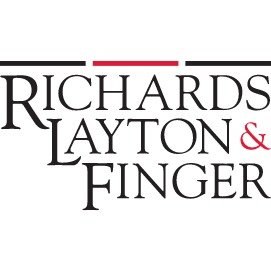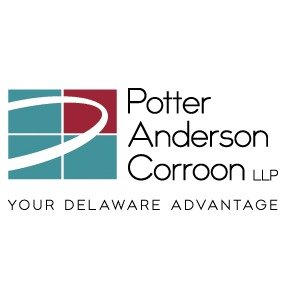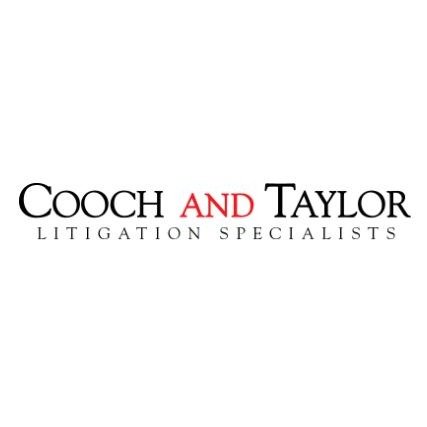Best Nonprofit & Charitable Organizations Lawyers in Wilmington
Share your needs with us, get contacted by law firms.
Free. Takes 2 min.
List of the best lawyers in Wilmington, United States
About Nonprofit & Charitable Organizations Law in Wilmington, United States
Nonprofit and charitable organizations play an essential role in the community of Wilmington, focusing on a variety of causes from education and healthcare to arts and social services. These organizations operate on a not-for-profit basis, meaning they do not distribute profits to shareholders but instead use funds to support their missions. In the United States, including Wilmington, nonprofit organizations are primarily governed by state laws and federal tax codes, notably the Internal Revenue Code.
Why You May Need a Lawyer
Legal counsel can be crucial for nonprofit organizations for several reasons:
- Establishment: Setting up a nonprofit involves navigating complex legal requirements, including incorporation and obtaining tax-exempt status.
- Compliance: Maintaining compliance with federal, state, and local regulations requires ongoing legal advice to avoid penalties and fines.
- Governance: Ensuring proper governance structures, including board bylaws and policies, to meet legal obligations and facilitate smooth operations.
- Contracts: Drafting and reviewing contracts with donors, vendors, and partners to safeguard the organization's interests.
- Employment Law: Compliance with employment laws and regulations for the organization’s staff and volunteers.
- Dispute Resolution: Addressing potential disputes with government entities, donors, or other stakeholders.
- Real Estate: Handling legal issues related to leasing or purchasing property for organizational activities.
Local Laws Overview
In Wilmington, nonprofit organizations must comply with both Delaware state laws and federal regulations. Key aspects include:
- Formation and Registration: Nonprofits must adhere to the Delaware General Corporation Law for incorporation and subsequently obtain federal 501(c)(3) tax-exempt status if applicable.
- Public Charities and Private Foundations: Different rules and reporting requirements exist for each, impacting their operations and funding activities.
- Annual Filings: Nonprofits are required to file an annual report with both federal and state authorities, showcasing financial stability and compliance.
- Solicitation Permits: Organizations that solicit funds in Wilmington must obtain appropriate solicitation permits and adhere to fundraising regulations.
- Property Tax Exemptions: Nonprofits may qualify for exemptions on property taxes; however, they must fulfill stringent requirements to obtain these benefits.
Frequently Asked Questions
What is the process for starting a nonprofit in Wilmington?
The process involves choosing a unique name, preparing the Articles of Incorporation, appointing a board of directors, developing bylaws, filing for 501(c)(3) tax-exempt status, and registering with state authorities.
How can my organization obtain tax-exempt status?
To obtain tax-exempt status, file IRS Form 1023 or 1023-EZ, ensuring all eligibility requirements are met, including a clear nonprofit purpose and proper organizational documents.
Are there specific fundraising regulations in Wilmington?
Yes, fundraising activities must comply with Delaware's Charitable Solicitation Act, requiring registration before soliciting funds from the public and accurate financial reporting.
What are the ongoing compliance requirements for nonprofits?
Nonprofits must file annual returns with the IRS, maintain proper records, conduct regular board meetings, and ensure compliance with fundraising regulations and employment laws.
Can nonprofits in Wilmington engage in political activities?
Nonprofits with 501(c)(3) status are prohibited from participating in political campaigns and must limit their lobbying activities to remain tax-exempt.
What are the legal responsibilities of nonprofit board members?
Board members must act in the best interest of the organization, fulfilling duties of care, loyalty, and obedience to ensure lawful and effective management.
Are nonprofit organizations required to have insurance?
While not mandated by law, it's advisable for nonprofits to hold liability insurance, errors and omissions insurance, and workers' compensation insurance to mitigate risks.
What happens if a nonprofit loses its tax-exempt status?
Losing tax-exempt status can result in significant penalties, including being required to pay corporate income taxes on revenue. Organizations can seek reinstatement but must follow IRS guidelines.
How can a nonprofit apply for property tax exemption in Wilmington?
Nonprofits must apply with the local assessor’s office, providing documentation of nonprofit status, property use, and compliance with state exemption criteria.
What steps should be taken if a nonprofit faces financial difficulties?
Consider legal counsel to explore options such as restructuring, merging with another organization, or potentially dissolving in compliance with state laws.
Additional Resources
Here are some helpful resources for nonprofits seeking legal advice:
- Delaware Department of State - Division of Corporations: Provides information on nonprofit registration and compliance requirements.
- Internal Revenue Service (IRS): Offers detailed guidance on federal tax-exemption applications and compliance.
- Delaware Alliance for Nonprofit Advancement (DANA): A resource for training, advocacy, and support for nonprofit organizations in Delaware.
- National Council of Nonprofits: A nationwide network offering insights, best practices, and legal information for nonprofits.
Next Steps
If you believe that you need legal assistance, consider taking the following steps:
- Research and contact lawyers or law firms specializing in nonprofit law in Wilmington. Seek referrals or consult directories such as the Delaware State Bar Association.
- Prepare documentation related to your nonprofit, outlining specific legal needs or issues you are facing.
- Schedule consultations with potential attorneys to discuss your organization's needs and obtain advice on your next legal steps.
- Evaluate the expertise and experience of each lawyer, considering their familiarity with local laws and nonprofit regulations before making a decision.
Lawzana helps you find the best lawyers and law firms in Wilmington through a curated and pre-screened list of qualified legal professionals. Our platform offers rankings and detailed profiles of attorneys and law firms, allowing you to compare based on practice areas, including Nonprofit & Charitable Organizations, experience, and client feedback.
Each profile includes a description of the firm's areas of practice, client reviews, team members and partners, year of establishment, spoken languages, office locations, contact information, social media presence, and any published articles or resources. Most firms on our platform speak English and are experienced in both local and international legal matters.
Get a quote from top-rated law firms in Wilmington, United States — quickly, securely, and without unnecessary hassle.
Disclaimer:
The information provided on this page is for general informational purposes only and does not constitute legal advice. While we strive to ensure the accuracy and relevance of the content, legal information may change over time, and interpretations of the law can vary. You should always consult with a qualified legal professional for advice specific to your situation.
We disclaim all liability for actions taken or not taken based on the content of this page. If you believe any information is incorrect or outdated, please contact us, and we will review and update it where appropriate.

















